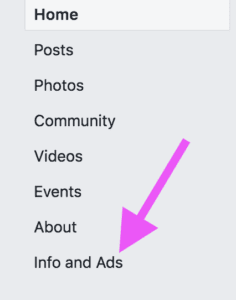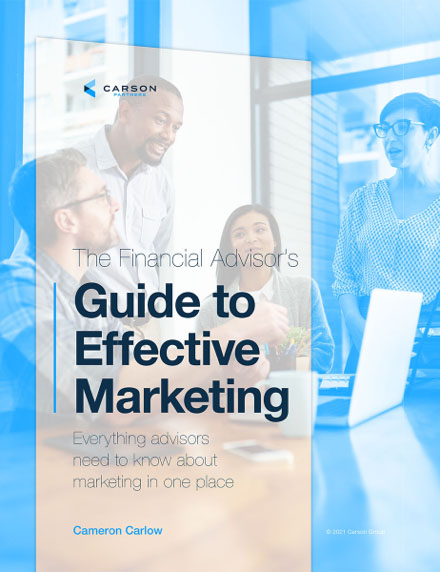If you’re not currently advertising your firm on Facebook, you’re really missing out. With over 1 billion daily active Facebook users, it is by far the largest and most used social network in the world. Despite its size and influence, it remains a surprisingly affordable option for getting your firm in front of the right people. The best part is you don’t have to be an advertising guru to make Facebook ads work for your firm. With a little practice, Facebook advertising is pretty user-friendly. Getting started is often the hardest part. The good news is, once you figure out what works best for you and your firm, you will start getting into a rhythm with your advertising techniques. So, without further ado, let’s dive into the basics of Facebook advertising for advisors.
Audience
Knowing your target audience is essential before you start any type of Facebook ads. Without the right audience, your ROI will probably be pretty abysmal. It might be helpful to start by defining your general audience. What locations do you want to target? Which age groups will find your services most helpful? What are some of your clients’ main interests? Which income levels might find your services most relevant? Be sure to create your Facebook ads audience with your clients’ needs in mind first – this shouldn’t be an afterthought. That way, you can make sure you’re message is getting in front of the people you want. It’s important to keep in mind that while you may have a general audience you want to target, each advertising campaign you create should have its own unique audience that’s tailored to your advertising messaging. For example, if you want to advertise your retirement planning services, you’ll probably want to target people in the 50 to 64 age range, whereas if you’re advertising your tax services, you could lower the age minimum considerably. You’ll likely want to target different ages, interests and incomes levels for these separate advertising campaigns. Thankfully, Facebook does an excellent job of making it easy to reach super-specific audiences. When building your ad, Facebook’s audience selection tool hosts thousands of behaviors, interests and demographics for you to choose from. Be sure not to rush this part. Dig into different behaviors, interests and demographics to create an audience that will find your advertising campaign most relevant. You can also create two identical versions of your ads and test them with different audiences to learn which set of audience identifiers work best for you.
Pro tip: While Facebook is always working to improve their targeting, one demographic that we try to avoid is income. You can target based on people based on income (top 25%, top 50%, etc.), but we’ve never been too impressed with the results. For starters, it’s an especially expensive way to target people as a lot of companies use it. On top of that, it’s not very accurate. Facebook doesn’t ask you how much you earn, so it has to guess based on the pictures you post, any work info you post, and other factors. If someone posted a picture of a Tesla once, Facebook’s algorithms often take that as proof that they earn a lot of money, when in fact they may just be fans of cars. Geography, gender and age are basically the only three factors Facebook knows for sure. Beyond that, you can have some great success with targeting, but you shouldn’t expect laser accuracy.
Related content: How Schlipman Wealth Advisors combined Facebook advertising with other marketing initiatives to spark an 800 percent spike in site traffic
Budget
As an advisor, you’re probably most mindful about the cost of Facebook advertising – makes sense! It’s part of your profession to keep finances in mind, after all. But it’s important to remember that advertising budgets should be seen as an investment, not simply a cost. Facebook advertising (when done correctly) helps boost general awareness of your firm and its services and bring in valuable leads. Even better, Facebook advertising is generally affordable and probably less expensive than you might think. Many ad campaigns can run for just $10 a day and still yield results – depending on audience size and duration of the campaign. Just know that the more you’re willing to spend, the more your ad will be shown. We typically like to spend at least $1,000 per month on a campaign. It’s best to do your research and determine your audience size before settling on a budget. Facebook advertising shouldn’t be a one-size-fits-all approach, so each ad campaign will likely require a different spend. For example, if you’re running an ad campaign for an audience size of 2,000 Facebook users for 30 days, you could probably cover everyone for $10-15 a day. However, if you’re running a larger, more general ad campaign with an audience size of 15,000 for the same amount of time, you’ll want to increase your budget to hit everyone. One note here: even if Facebook says your audience size is 15,000, you won’t hit 15,000 people. After accounting for people who rarely check Facebook and others who don’t use it anymore at all, you’ll likely come in somewhere under that. Our best advice for Facebook ad budgets for beginners is to test and keep track of results. There’s no one right answer for all advisors. Start low in the beginning while you are still testing different audiences, creatives and offerings. After a while, you’ll start to notice a trend with your spending and determine a monthly budget that works best for you.
Creative
The creative portion of Facebook advertising is more important than you might think. “Creative” refers to the copy and imagery of your ads. Compelling ad messaging and eye-catching images are essential to a successful Facebook ad campaign. If you don’t have a marketer or copywriter on your team, don’t fret. With some practice, you can create compelling ad copy that grabs your audience’s attention. Some quick tips to keep in mind:
- Keep it short and sweet: Most Facebook users won’t take the time to read a full paragraph before deciding if they want to click on your ad or not.
- Appeal to emotions: People respond to emotional triggers. Include copy that tugs at the heartstrings.
- Focus on personal benefits: How will the financial services and offerings you’re advertising benefit your audience? Create copy that answers this question. Too often, advisors write ads that talk about how great they are. Focus on your prospects.
- Always proofread: Spelling and grammatical errors are never a good look – especially when advertising. Always proofread and have someone else in the office take a look at your ad copy before publishing your ads.
- Revise: The first version is never the best version, so don’t get so married to the first copy you write that you’re unwilling to change it, even if it makes it better.
We also suggest writing multiple variations of ad copy so you can test which type of messaging and language resonates the best with your audience. When it comes to imagery, stock photos are a good option if you don’t work with a photographer or designer. There are plenty of free sites that you can pull stock photos from (just be careful to read their rules on citation!). Find images that look professional, fit your brand and complement your ad copy.
Pro tip: Images with faces tend to work best!
Keep it Going
Once you’ve tackled the basics and published your first few Facebook ad campaigns, there are some best practices you’ll want to keep up with.
Reporting/analyzing
The end of a campaign shouldn’t mean the end of your Facebook advertising efforts. Always take the time to record results from your campaigns. Take note of key ad metrics such as overall spend, impressions, clickthrough rate (CTR), cost per click (CPC), and conversions (if applicable). This will help you when creating future ad campaigns, as well as help you get a better picture of your ROI.
Consistency
Facebook ads should be consistent. While you may not always want to have multiple campaigns running simultaneously, depending on your business, try to have at least one campaign running at all times. It is also important to not pull the plug on a campaign too early. It takes time for Facebook’s algorithm to fully execute a campaign, so pulling an ad that isn’t doing well one week after you launch isn’t the best practice. Use a wait-and-see approach and adjust the strategy next month.
Competitor research
Always do your research! See what other firms are doing on Facebook to help boost your ad strategy. Pro tip: You can snoop on your competitors’ Facebook ads by visiting their company page on Facebook and clicking on “Info and Ads” in the left-hand column. If they are currently running any Facebook ads, you’ll be able to see them here.
Retargeting
Facebook retargeting campaigns are an amazing way to collect more leads and generate a higher ROI. Retargeting campaigns help you serve relevant ads to Facebook users who have already visited your website, interacted with a past ad or visited a specific landing page. You can start retargeting by following Facebook’s instructions via Ad Manager on how to install a Facebook pixel on your company’s website. This should be done as soon as you start advertising on Facebook. Without a pixel, you can’t retarget anyone. However, if you missed the boat on this, don’t worry. A Facebook pixel will begin tracking users for you to retarget as soon as it’s installed.
Things to Remember
Now that you’ve got your basics down, you’re ready to start advertising on Facebook! Just be sure to keep these things in mind:
Compliance
As an advisor, you already know that everything you publish online needs to be approved by compliance first. When it comes to Facebook ads, write copy that doesn’t guarantee potential clients anything or use testimonials from current clients. That’s a no-brainer, but you may be surprised to find that Facebook is sometimes even pickier than your compliance department. They can get in trouble for hosting content that goes against SEC guidelines too, so they may reject something if it sounds too close to a promise.
Patience
Patience is key when it comes to any type of digital marketing – especially Facebook ads! Don’t expect to be a pro at first, and have patience with the process. Once you discover what works best for your firm, you’ll start to see what a difference Facebook ads can make for your business. Looking for more ideas for growth? Schedule a consultation with a Carson Coach today to see why Coaching members grow more than twice as fast as the industry average.



